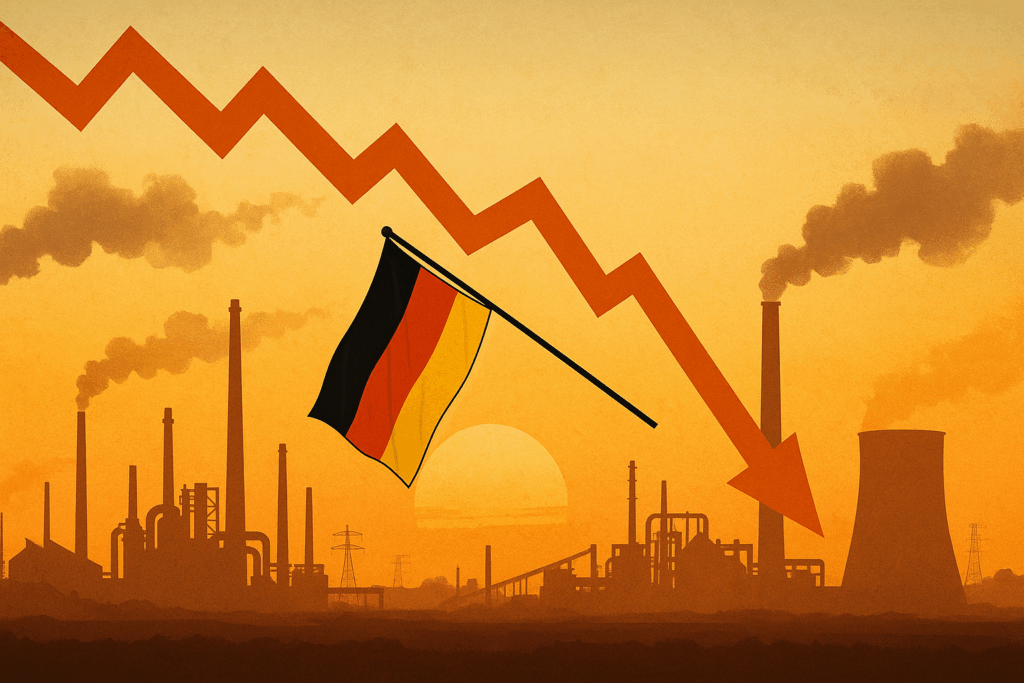Germany is hurtling at breakneck speed towards an economic abyss. A combination of a stagnating economy, dangerous dependence on subsidies, exploding energy costs, and rampant bureaucracy is increasingly putting the pillars of industry under pressure. Traditional value creation is faltering because companies are no longer able to operate freely but are instead trapped in a web of state control and regulatory constraints. Industrial production is collapsing, municipalities are losing revenue, and companies are spiraling deeper into decline due to soaring electricity prices and regulations. This shift is leading away from genuine value creation and into an industrial policy dead end.
Mechanical engineering on the brink of collapse
The mechanical engineering sector is among the biggest losers of this development. With a 19 percent drop in orders, the industry faces a collapse that has even shocked experts. Although the industry association points to a lack of large orders compared to the previous year, the trend is clearly downward. At the same time, government intervention is tightening the grip of state subsidies, as many industrial sectors are dependent on government aid.

Energy prices are skyrocketing, and politically driven, excessive bureaucracy is exacerbating the uncertainty. As a result, production chains are shifting abroad, while factories here at home stand idle. An industrial abyss is opening up, one that can hardly be stopped without a fundamental change of course.
Speechless Management
Voices from the industry remain conspicuously silent. Many companies avoid criticism because their business models hardly seem viable without government support. Christian Kullmann of Evonik criticizes European climate policy, but his words go unheard.
Instead of open discourse, an atmosphere of dependence on subsidies prevails. Companies lie low and follow the flow of subsidies, even if it leads to economic collapse. This shows that the fixation on state aid not only stifles the industry but also robs it of the courage for open debate.
Former Executives Sound the Alarm
Matthias Müller, former VW CEO, speaks of an impending “job massacre” and warns of the consequences of phasing out combustion engines. He also criticizes the dramatically high energy costs – a factor that is driving production sites into ruin.
The automotive industry thus exemplifies the bigger picture: an overregulated system that is caught in a flood of administrative rules and paralyzes industrial support. The consequences are clearly visible: suppliers are cutting thousands of jobs, while small and medium-sized businesses are going bankrupt.
The Green Illusion as the Next Abyss
Instead of an honest assessment of the situation, politicians are relying on empty promises of a green future. Funding programs for heat pumps or recycling exist, but they cannot replace globally competitive industries. It’s a game of playing with subsidies that generates short-term optimism but ultimately leads to economic ruin.
Municipalities feel the reality more acutely than any ministry: Declining business tax revenues are tearing holes in their budgets, while citizens and businesses continue to be burdened. This supposed transformation carries the risk of a lasting industrial decline that future generations will have to bear the consequences of.
Germany thus stands at a crossroads: Either it rediscovers its industrial strength – or it takes the next step into a structural collapse that jeopardizes prosperity and stability. (KOB)
